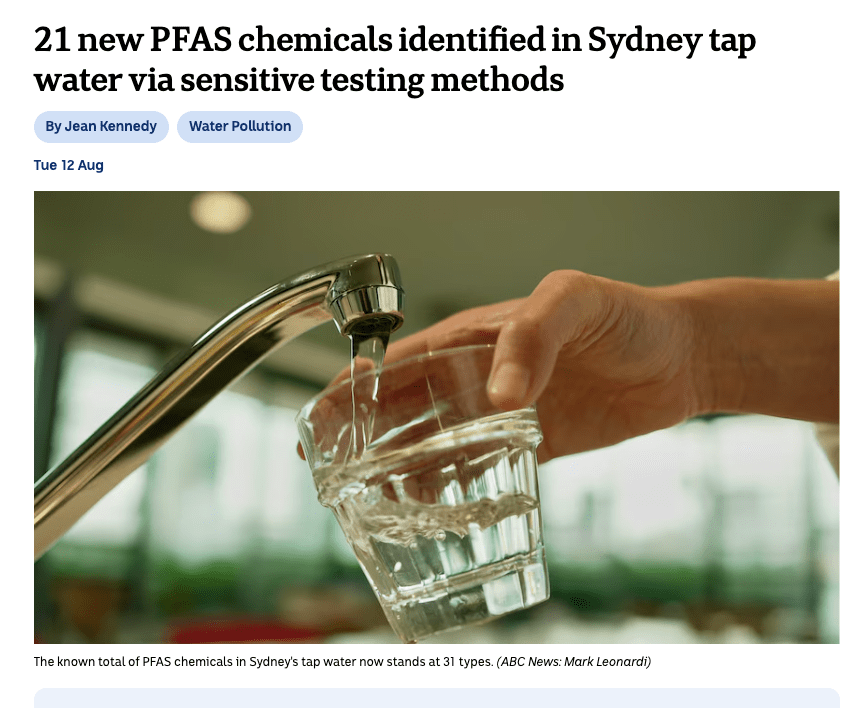
Understanding PFAS in Sydney’s Tap Water: What Recent Research Means for You
Share
At Hydroco, our mission has always been to support safe hydration and informed choices by providing Australia's premium stainless steel filtered water bottle. That's why we want to share, and clarify, the latest news about PFAS, the so-called “forever chemicals,” and what the newest findings about Sydney's tap water mean for you.
What’s New?
A study by researchers at the University of New South Wales has detected 21 previously unreported PFAS compounds in Sydney’s tap water bringing the total identified to 31 different types. This includes two notable findings:
-
6:2 diPAP, previously found in bottled water and other consumer environments but not in tap water until now.
-
3:3 FTCA, not only new to Australia’s detection record, but reportedly only ever detected once globally in a drinking water supply before this study.
These discoveries were made possible thanks to more sensitive testing methods used by the researchers.
Why This Matters and What’s Next
Though levels are currently low, these findings highlight important gaps:
-
We may be underestimating the range and prevalence of PFAS compounds in water.
-
This study underscores the need for broader and more frequent monitoring, particularly with improved testing methods.
-
Governments and researchers are calling for expanded PFAS monitoring across Australia, including national surveys and seasonal assessments.
Meanwhile, water authorities are taking steps to reduce PFAS levels:
-
In the Blue Mountains, where elevated PFAS were detected in some catchments, an advanced filtration system using granular activated carbon (GAC) and ion-exchange resin is being installed to improve removal by early 2025.
-
Authorities (both state and national) are working to update drinking water guidelines and consider adopting more protective standards, possibly in line with stricter global benchmarks.
What You Can Do
-
Stay informed: Keep an eye on official monitoring results from sources like Sydney Water or state health departments.
-
Understand limitations: Recognise that blood tests for PFAS aren’t recommended unless advised by your doctor, as current science doesn’t support their diagnostic benefit. Support stronger standards: Advocate for stronger, more protective PFAS regulations that account for a wider range of compounds—not just those currently regulated.
Bottom Line for Hydroco Readers
PFAS, the persistent “forever chemicals,” are more prevalent than we realised—but so far, at levels that remain within safe guidelines. This underscores not just the importance of advanced testing, but the ongoing role of consumer awareness and responsible water stewardship.
If you’d like to explore how Hydroco’s filtered bottles align with best practices for filtering PFAS, or how our filters work in conjunction with tap-water testing feel free to reach out. We’re here to help you stay hydrated, safely and sustainably.
